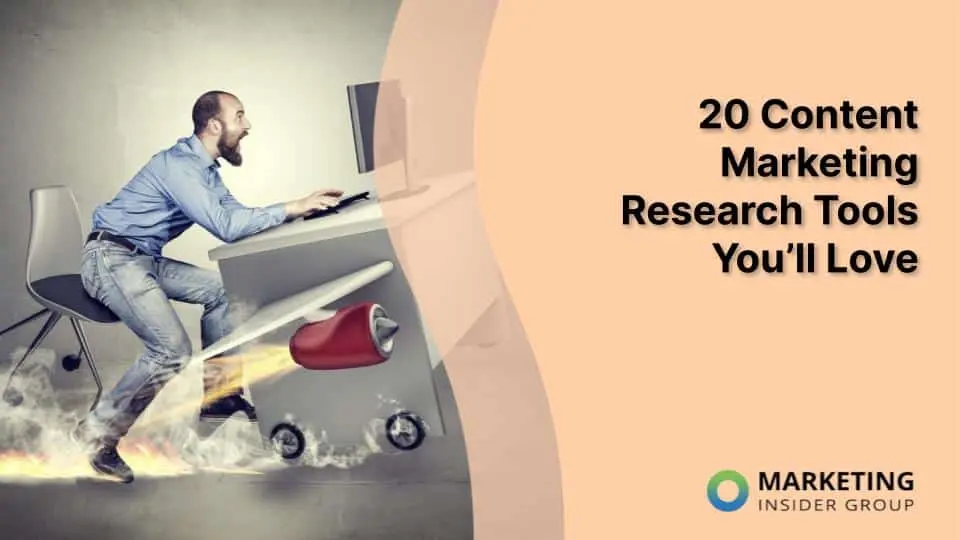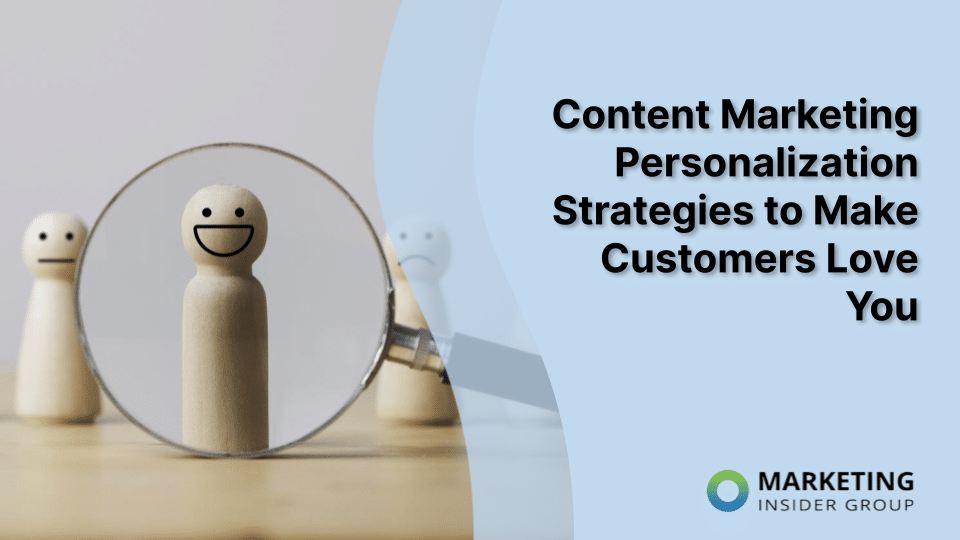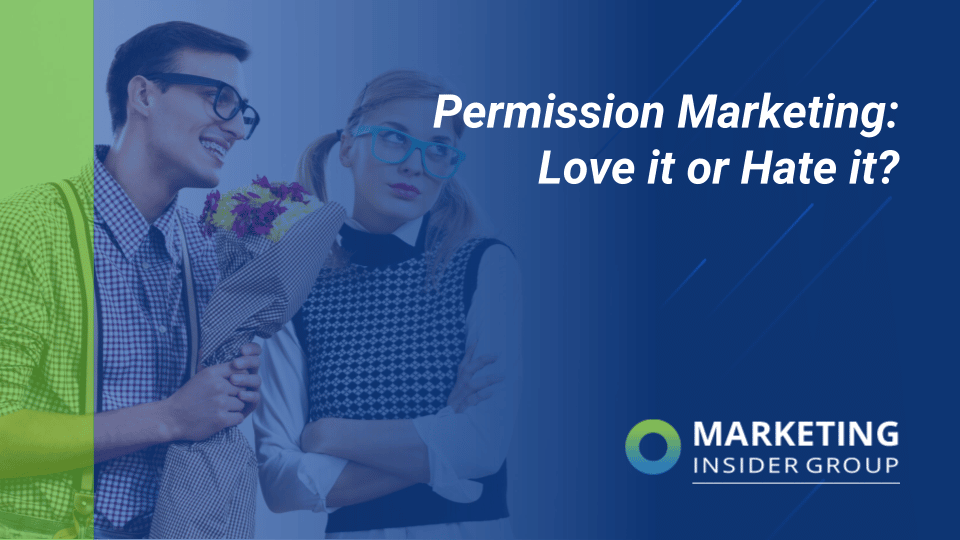
Permission Marketing: Love it or Hate it?
For the longest time, marketing and advertising have been seen as intrusive and interruptive. A commercial on TV, an ad on the radio, and those huge billboards along the highway are all part of traditional marketing and advertising.
Furthermore, the introduction of the internet and social media has resulted in ads showing up on our social media feeds and timelines too. (I can hardly even use Instagram any more because of it! Is it just me?)
Seth Godin found the answer to this consumer dilemma in 1999, as he developed the idea of “permission marketing.” In his book Permission Marketing: Turning Strangers into Friends and Friends into Customers, he defined the term as the type of marketing where you need the consumer’s consent before sending out information.
Seth also said “Content marketing the only marketing that’s left!” It’s one of my favorite marketing quotes!
This means that if you get their approval, in some manner, they’re interested in your brand and tend to have higher engagement levels.
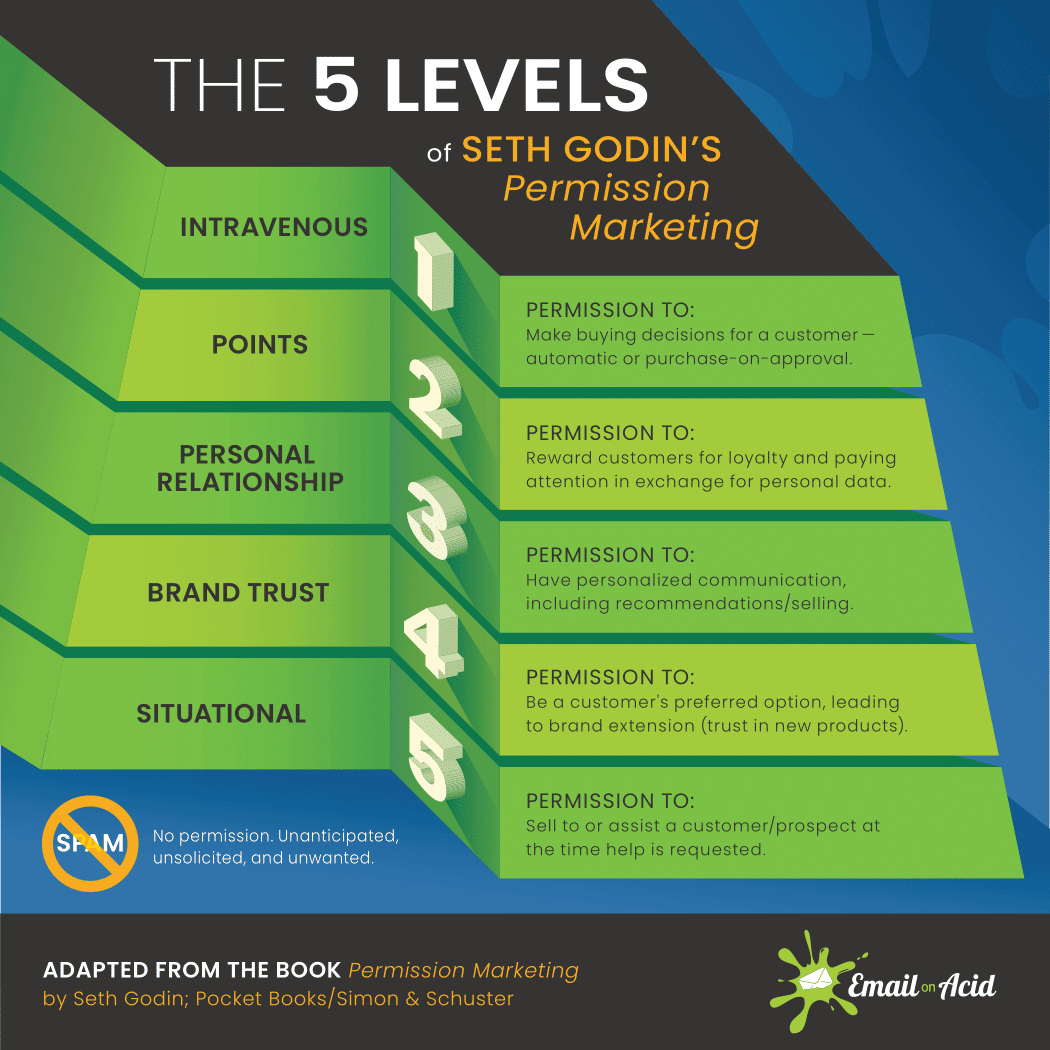
Permission Marketing vs. Interruption Marketing
Permission marketing shifts the power to the consumer. It relies on their decision as to whether they’ll allow the information to reach them. This activity alone makes it different than traditional interruption marketing.
Your consumers can only focus on so much. If you bombard them with too much marketing material, it can result in ad fatigue. The last thing you want to do is annoy your audience unless of course, you’re happy with a bad user experience.
- Source: https://blog.hubspot.com/marketing/why-people-block-ads-and-what-it-means-for-marketers-and-advertisers
Permission marketing increases the efficiency of any marketing strategy by zeroing-in on the prospects that are the most likely to engage. It also gives your audience a chance to opt-in. By providing certain information like name, email address, or phone number, the consumer permits you to use the information in exchange for valuable content like an e-book or whitepaper.
Seth Godin has repeatedly said that permission marketing gives you the opportunity to “earn the privilege” of interacting with your consumers. They’re paying attention to your marketing because you’ve earned their attention.
Examples of permission marketing are everywhere, although you may not notice them. A consumer’s social media activity (likes, favorites, and shares) are one aspect of permission targeting. This activity shows interest, and in permission marketing, this is what you need. For example, if a consumer liked a post from a brand’s page, he or she will be far more likely to engage with that brand’s content in the future.
Subscriptions are also considered permission marketing. If a user opts in by agreeing to receive a newsletter or subscribes to a podcast or YouTube channel, they must provide at least some portion of their contact information (usually an email address). Each of these actions gives a clear signal as to a prospect’s interests and gives your brand the in it may need to attract a prospect’s attention.
Benefits of Permission Marketing
1. Boosts Quality Leads
Your consumers have expressed their interest in purchasing your product or service; therefore their inherent interest (higher than those who didn’t opt-in) add to your engagement and conversion rates. These prospects can be considered high quality leads.
2. Increases Relevance
Because you’re targeting a consumer who’s already shown interest in your product or service, you know that your marketing strategy is relevant. Furthermore, by knowing that your targeted audience is already one step into your sales funnel, you can produce personalized campaigns based on demographics and their online behavior.
3. Lowers Costs
For the most part, permission marketing can and should be automated. There are several permission marketing tools (like email marketing automation) that can help improve process efficiency and ultimately, reduce the variable costs associated with running permission marketing campaigns.
4. Builds Loyalty and Reputation
Permission marketing is a continuous interaction. It doesn’t stop after the permission is given, especially if they like how you interacted with them in the first place.
Since you’re targeting them at the most relevant time, they’re less likely to block or ignore your marketing strategy. It’s always a good idea to build a good reputation with your customers.
Our data from actual clients shows that those who use content marketing with existing customers see a 4x higher Cusrtomer Lifetime Value (CLV).
Challenges with Permission Marketing
1. Getting to Yes
Permission marketing banks on getting that “yes” from consumers. But what would make them do that? Well, you need to be able to communicate the value of your offering, without coming off as too pushy.
Formulate and communicate your Unique Selling Proposition (USP) properly. Give the reason why their lives will change through your product or service. A compelling value proposition enables you to catch their attention right away.
2. Fewer Leads
The number of leads you acquire via permission marketing will likely be lower than traditional broadcast methods because you require users to opt-in. On the other hand, you can expect your improved conversion rates to offset any potential drop in leads that may occur.
3. Timing Issues
The turnaround time of permission marketing might take longer than usual. This is because you’re only targeting a portion of what you were targeting before. Once again, improved conversion rates should more than make up for any lag in lead time.
In Conclusion
Permission marketing is your consumer’s green light. This type of marketing works for most of the companies in general because of the benefits mentioned above, but also because most consumers are sick and tired of disruptive marketing tactics. The modern customer outlook is changing, so we’d better start giving them what they want.
Remember not to neglect marketing automation! These tools can assist you in scaling your permission marketing efforts on a personal level.

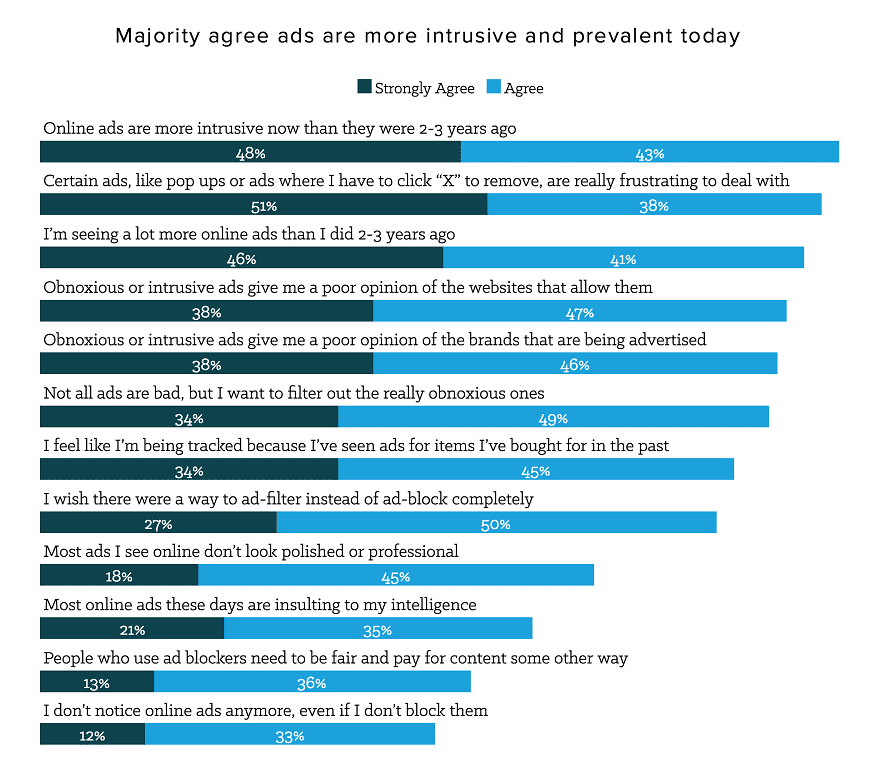
![AI and Content Marketing: A Love Story or Disaster Waiting to Happen? [Webinar Recap]](https://marketinginsidergroup.com/wp-content/uploads/2023/09/MIG-Feature-Image-Template-77.png)
